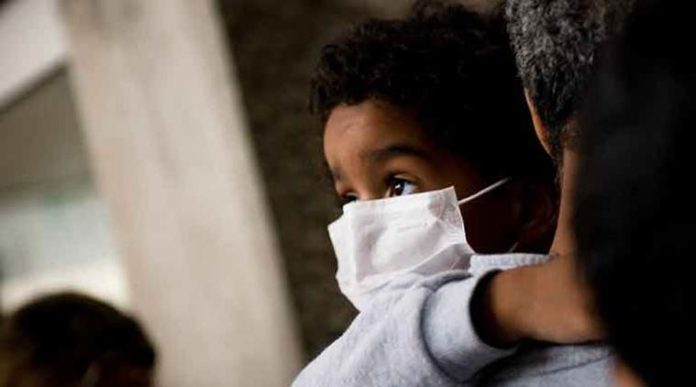New Delhi (NVI): At least 132 children from Child Care Institutions across the country contracted COVID-19, as per reports that emerged during a two-day consultation held by the Juvenile Justice Committee of the Supreme Court in co-ordination with UNICEF.
The apex court and the UN body held consulation on November 28-29 to review and take stock of actions taken by various states on child protection during COVID-19 pandemic, subsequent to recent judicial orders.
The consultation was held with the Chairpersons and Members of Juvenile Justice Committees of various High Courts, the UNICEF said in a statement. The conference was also attended by the Secretary, Ministry of Women and Child Development (MWCD), Govt. of India and Departments of Women and Child Development and Social Welfare Departments from all states and union territories.
During the two-day conference, High Courts and States representatives presented an analysis of the access to sponsorship, social protection and welfare schemes of vulnerable families.
Since the passing of the Supreme Court order in April 2020, 64% children in need of care and protection who were in Child Care Institutions have been restored to their families (1,45,788 out of 2,27,518). The discussions focused on the follow up and monitoring of this and efforts taken to restore children were in their best interest within a family care context.
The protection of these children has been of concern in the aftermath of the COVID-19.
On the occasion, Justice S. Ravindra Bhat, Judge, Surpreme Court, and Chair of the Supreme Court Juvenile Justice Committee outlined the lasting and deep impact of the global pandemic on children and child rights issues. He highlighted the imperative nature of community and family-based care options.
“The nature and trajectory of Government benefit schemes coupled with community-led efforts that prevent separation of children from their own families will remain the key indicator of child protection in India,” he said while applauding the work being done by the child protection functionaries, ‘Corona Warriors’ and caregivers in these unprecedented times.
Justice Bhat also emphasized on the need to address the root causes of family separation of children.
Also present, Soledad Herrero, Chief of Child Protection, UNICEF India highlighted how COVID-19 has become a child rights crisis. “What started as a health pandemic, evolved into a full-blown socio-economic but also human rights crisis, with children among its biggest victims,” she said.
Ram Manohar Mishra, Secretary, Ministry of Women and Child Development, said, “We need to focus on quality of services and their impact on the lives of children, and appealed States to draft a detailed district action plans with support of children.” He also elaborated on the role of community in ensuring childcare.
The conference also underlined discussions on bail practices and diversion measures for children in conflict with law, as well as monitoring of cases to ensure sustainable long-term practices. About 60% children in conflict with law (5155 out of 8614) were also released to their parents.
“Detention of children must be the last resort in the case of children in conflict with the
law, as stipulated by international legal frameworks,” said Soledad Herrero.
“Bail and diversion should be the rule, not the exception. This is also aligned with the main objective of Juvenile Justice, which is reintegration of children in society,” she said.
Key priorities summarized by Justice Bhat and UNICEF at the end of the two days conference were: ensure child protection services are declared essential services on an equal foot as some other basic services such as health or education; ensure there is a review of child protection schemes and resources to ensure they can address the magnitude of issues, reach sub-district and community level so that they can benefit the most vulnerable children; increased emphasis on prevention of violence and family separation; ensure all children have access to formal and informal education opportunities; and greater investment in case management and harmonization of information management systems for children protection.
Soledad Herrero reiterated UNICEF’s commitment to fulfill these plans of action, and to realize the vision for every child of India to have the right to be protected, the right to a family, and most importantly, the right to realize her of his full potential.
Justice Bhat in his concluding remarks, stated “that when we say that children belong to us all, it cannot mean they belong to none” thereby urging everyone to work to restore the childhood of children and ensure their full citizenship rights.
-ARK








